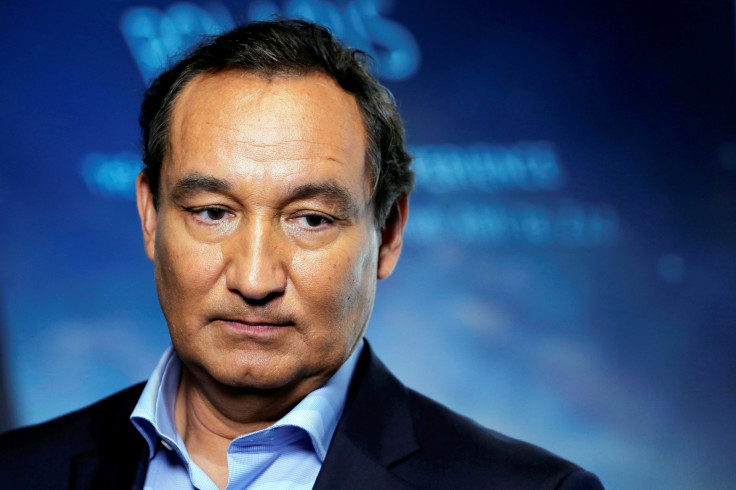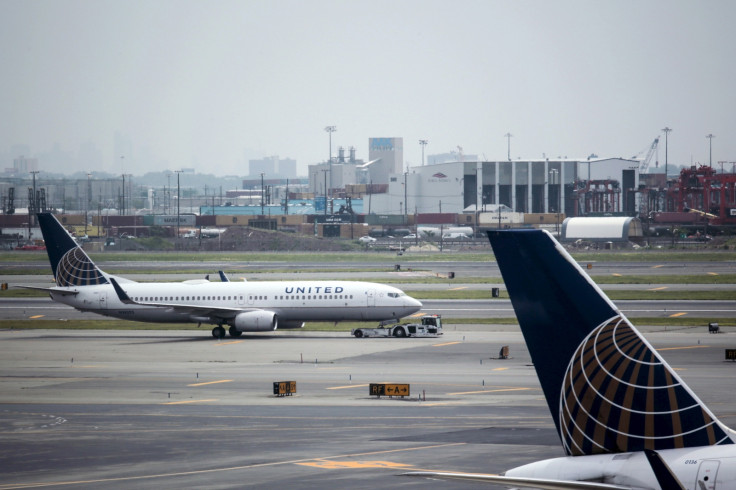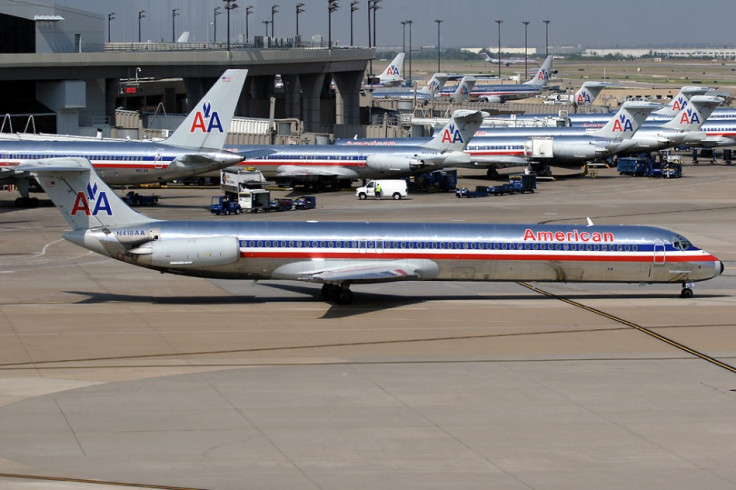United's fiasco, manufactured outrage and the airline industry's race to the bottom
Episode that caused a PR nightmare for United Airlines highlights state of the industry and flyers' relationship with it.
In case you haven't heard of David Dao, a passenger forcibly bundled off a recent United Airlines flight from Chicago's O'Hare International Airport to Louisville, you might well be excused for being on another planet.
It seems on Sunday (9 April) passenger accommodation protocols, and standards of human decency went wonky at the world's third largest airline by revenue. On the said flight which was overbooked - often the norm in the United States - four people were required to ''de-plane'' voluntarily in order to accommodate a turnaround crew.
When no one did, United exercised its right to choose people at random to leave the aircraft. Three randomly chosen passengers did so, but one – Dao – refused on grounds that he simply had to reach his destination in order to keep his appointments as a doctor.
Bizarrely, instead of listening to reason, United requested ground assistance to remove an increasingly agitated Dao.
O'Hare's management sent in three Chicago Airport police officers, who dragged a kicking, screaming and bleeding Dao off the aircraft, only for him to run back to the aircraft shouting "just kill me" before being dragged off again.
As if the whole episode wasn't disturbing enough, United's response was a public relations farce. Without waiting for a full report, the airline's chief executive officer Oscar Munoz declared Dao to have been "disruptive and belligerent" and promised to back his staff.
While United staff wanted Dao off the plane, none of them physically intervened or harmed him. However, Munoz's words immediately escalated United's exposure beyond aggressive overbooking to that of an uncaring carrier.
As news and videos of the incident started flooding cyberspace and airwaves, causing outrage symptomatic of a social media centric world, the company belatedly went into crisis management mode.
Impotence of being earnest
Inevitably, short-sellers decided to take intraday punts on United's stock, or more aptly United Continental Holdings' stock – the common entity's trading name following United's 2010 merger with Continental Airlines – driving it lower.
At one point, stock declines wiped off $800m (£640m) of its value, which as clever plays unravelled got reduced to $500m, and subsequently $255m by the time New York Stock Exchange closed on Wednesday (12 April).
Munoz issued a fulsome apology faced with stock declines. Although the CEO said he had not yet spoken to the passenger directly, he noted: "No one should ever be mistreated this way."

And so the share price decline stemmed. Some of it also had to do with Helane Becker, an analyst at Cowen & Co who raised her price target for United's stock, on the basis of encouraging March traffic, without mentioning Sunday's incident, bringing the market back to looking at fundamentals.
In a country where long or short distance rail travel alternatives are pretty slim, and twice as expensive, United will continue to pull in good domestic clientele once the social fuelled outrage and hashtags subside, and idiotic suggestions from overexcited commentators that the airline – which has a monopoly on certain routes – is finished, disappear from the airwaves.
One thing is certain, it being the litigious US of A, both the airline and O'Hare Airport can fully expect a lawsuit from Dao. Reports suggest he has already called in Thomas Demetrio, personal injury lawyer of some repute.
While United's share price will falter or recover based on market fundamentals, the size of Dao's ultimate compensation claim is unlikely to derail its commercial flightpath. The damage to its reputation is another matter and will last. The episode also raises some broader uncomfortable truths about the airline industry.
Airways to 'bareways': A race to the bottom
In the ultracompetitive airline industry, with legacy carriers toughing it out against budget airlines and subsidy-fuelled Middle Eastern 'superconnectors', and there being more seats than passengers, the sector's race to the bottom is not a relatively recent phenomenon.
Contrary to popular belief, despite Ryanair and easyJet, Europe's budget carriers widely credited as industry trendsetters, the airways to 'bareways' drive was actually begun by US carriers in earnest, including United.
Free drinks in economy class or 'coach' as it is known stateside were the first to go, as did free checked-in bags for non-frequent flyers. Forget US carriers, even Air Canada eventually succumbed to cost permutations of the latter move.
However, a more profound change – overbooking – which, discounting the actions of airport staff, triggered the Dao episode, and so outraged US lawmakers, came much earlier in many ways with their tacit acknowledgement.
The 9/11 terrorist atrocities, and downturn in the industry caused a shake-up in the US aviation. A wave of mergers followed, resulting in a reduction of options for domestic passengers.
American Airlines subsumed TWA, US Airways took over America West, Delta went for NorthWest, United for Continental, and SouthWest for ATA and AirTran. The trend lasted well into the current decade with American Airlines merging with US Airways, and more recently Alaska Airlines bid for Virgin America.
Many players, including market leader American Airlines, grappled with, and emerged from, Chapter 11 bankruptcy protection. In such a tough climate, while charging for luggage check-in and drinks matters, it's overbooking flights, in some cases by as high as 10%, that became much more of a banker.

To alleviate concerns, United and its peers assured federal regulators that all ticketed passengers are "guaranteed" seats on flights. However, the devil is in the detail – guaranteed seats. Enter 'standby tickets'; once an emergency measure for genuinely needy passengers, such tickets became the instrument to improve aircraft occupancy or 'load factor' as its known in the industry.
The seats for such tickets would indeed be guaranteed but not necessarily on the same flight. United, like other US carriers, retains a contract of carriage allowing it to bump off passengers at its discretion. However, the Dao saga was borderline stupidity on the airline's part.
For starters, on an overbooked flight, higher tier frequent flyers are rarely asked to de-plane based on my personal experience. US armed services personnel and parents - whether single or couples, travelling with infants - are awarded the same courtesy.
Then voluntary or mandatory requests are made of the rest with the offer of monetary compensation and accommodation on a later flight. However, it is to be done at the boarding gate, not when passengers have already taken their seats on the aircraft, as Dao had done.
Surely, United knew it would need four seats for a turnaround crew well before it began boarding. Couldn't volunteers have been sought at the gate? Or failing that, if the demand was mandatory, save Dao and others the inconvenience of having to board and de-plane.
Finally, Dao's state of mind cannot be commented on given it will now be a matter of investigation. However, was it really necessary to send in three armed officers to drag a 69-year old medical professional who was insisting he needs to be at his destination, and had rebuffed all alternative offers?
To quote US President Donald Trump, who also weighed in on the outcry: "They should have gone up higher [when offering money to passengers to take later flights]. But to just randomly say, 'You're getting off the plane,' that was terrible."
The President has a point, but another moot point has largely bypassed the attention span of many.
'Hashtagged' outrage
Cue all the outcry, as images of Dao being dragged off the plane appeared on our phones, laptops and TV screens. Pick any video off social media channels and notice the due diligence with which the ubiquitous smartphones of Dao's co-passengers are busy filming the hapless sexagenarian being dragged away blood dripping, clothes and spectacles falling off.
Symptomatic of the age we live in, after navel gazing at another's mishap comes the online streaming followed by the 'hashtagged' outrage. It is highly unlikely that the airline and Dao's conversation was animated from the onset. Other footage has him saying he had patients to attend to next morning and simply had to fly.
Had I been in an adjacent seat and overheard the conversation, I would have offered to de-plane in his place, barring a family emergency requiring me to travel, not pulled out my smartphone to record the episode and share it with CNN.

It seems outrage extends to hashtags and indignation, but woe betide should it cause personal inconvenience to accommodate a fellow passenger claiming to be a medical professional. Not just the Joe consumer, United's rivals, especially subsidy-fuelled Middle Eastern carriers also had a field day and suddenly became bastions of customer interests.
Emirates even put out an advertisement having a pop at Munoz. If I was the United CEO, I'll troll Emirates right back with the story of Lee Charlton, from Manchester, who had the airline's Dubai check-in team allegedly laugh at him and his partner Jason in June 2016, when they confirmed they were a gay couple, while travelling from Dubai to Durban with their son, Kieran.
The family were then allegedly shut in an airport back room for two hours without explanation, and told their documentation would not allow them to enter South Africa, before being allowed to proceed with their journey.
Of course, unlike Dao, and lucky for Emirates, Charlton's harrowing experience was not caught on video by social media navel gazers so alleged it shall remain as the airline said it was merely enforcing "international child protection rules" in Kieran's context.
At one point, though not anymore, a pregnancy resulted in dismissal of cabin crew at Qatar Airways, not maternity leave.
It also does not bother many of us who fly the likes of Eithad, Emirates, Qatar Airways and other feeder airlines from the Middle East, that many of them have been propped up by sheikdoms with questionable human rights records, as long as that flight to Thailand is cheaper than anywhere else.
Of course, United will carry the burden of reputational damage from the episode, but like Charlton's harrowing saga from 2016 barely registers in 2017, so will Dao's in a few years' time. Whether it's United or Emirates, as flyers we abet and abhor them depending on mutual inconvenience and personal economics with a smartphone in tow, and that won't change anytime soon.
Gaurav Sharma is the Business Editor of IBTimes UK. He has been a financial journalist for over 15 years, with a core specialisation in macroeconomics and commodities. Follow Gaurav on Twitter.
© Copyright IBTimes 2024. All rights reserved.






